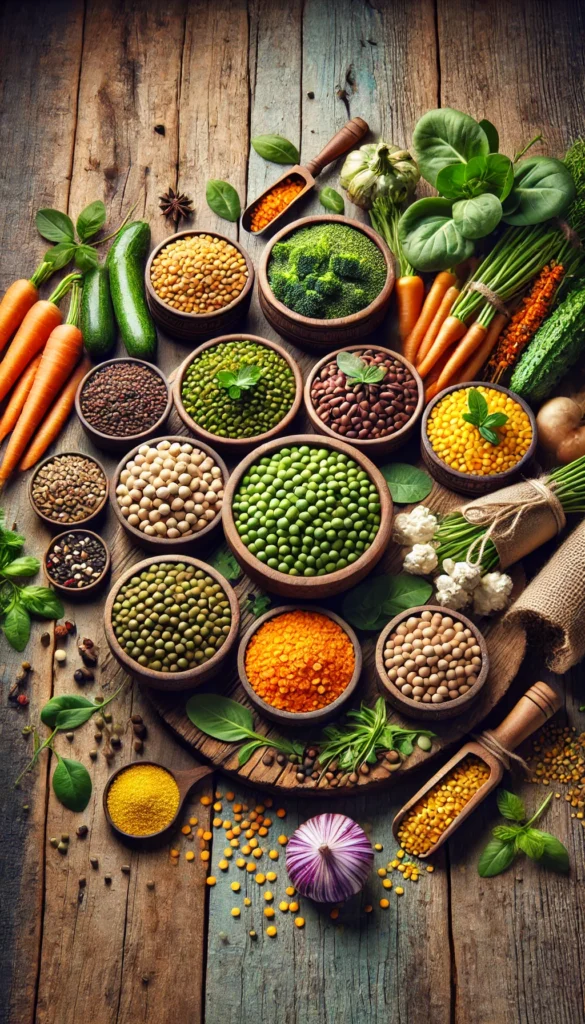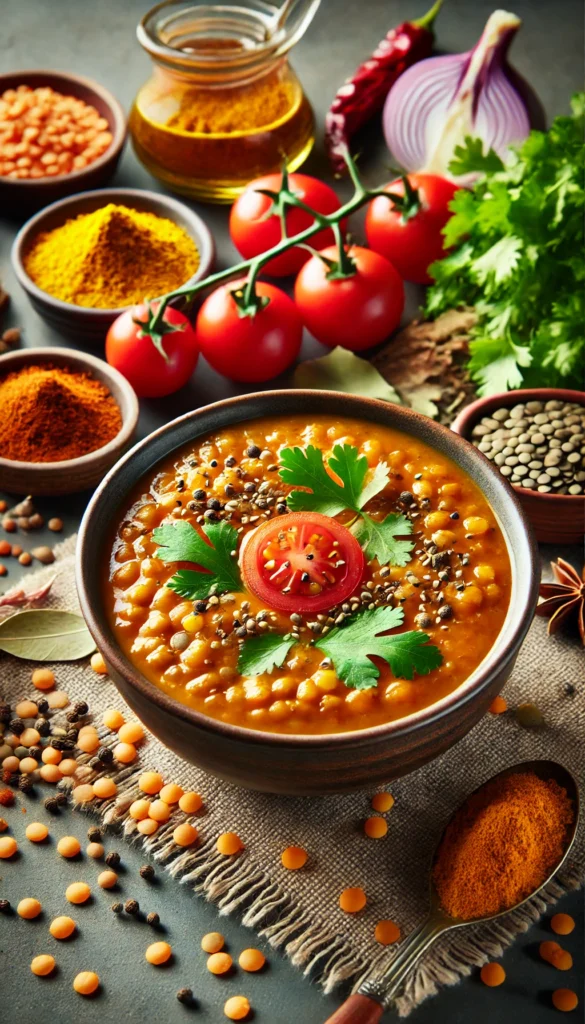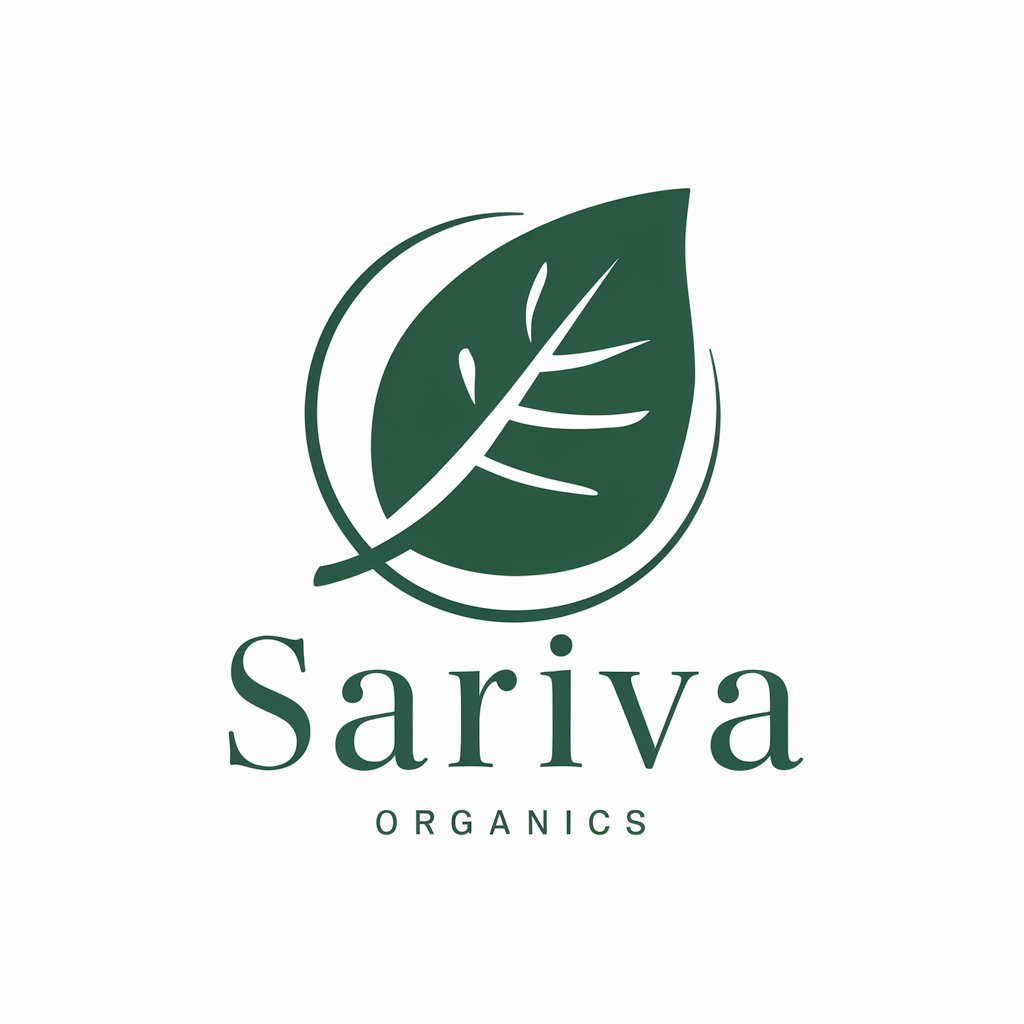Hello! I’m Shashi, an organic farming enthusiast and owner of Sariva Organics. My love for plants and farming began in my childhood, and I’ve spent years exploring the benefits of organic produce. Growing up in Kolkata, I often helped my grandmother in her garden, learning the secrets of natural farming and the importance of wholesome, unadulterated food. Those early experiences shaped my philosophy and led me to embrace organic farming wholeheartedly.
Today, I want to share the wonders of organic dals (lentils) and their incredible health benefits. Dals have always been a staple in my kitchen, providing essential nutrients and a comforting, familiar taste. In this blog post, I’ll dive deep into the health benefits of organic dals, share some personal stories, and offer tips on incorporating these nutritious gems into your daily diet. So, let’s embark on this journey towards a healthier, more organic lifestyle together!
Key Takeaways
- Health Benefits: Organic dals are rich in proteins, fiber, vitamins, and minerals, providing numerous health benefits, including improved heart health, digestion, weight management, blood sugar control, bone health, and immune system support.
- Chemical-Free: Organic dals are free from harmful pesticides and chemical residues, making them a safer and healthier choice compared to conventional dals.
- Nutrient-Rich: The absence of synthetic chemicals helps organic dals retain their natural nutrient profile, ensuring maximum nutritional value.
- Sustainability: Choosing organic dals supports sustainable farming practices that promote soil health and biodiversity.
- Versatile and Delicious: Organic dals can be easily incorporated into various recipes, adding flavor, texture, and nutritional value to your meals.
- Trusted Sources: To ensure you are getting genuine organic products, purchase from trusted sources like local organic markets, reliable online stores such as Sariva Organics, or directly from organic farmers.
- Storage Tips: Store organic dals in airtight containers in a cool, dry place to maintain their freshness and quality.
Understanding Organic Dals

Definition of Organic Dals
Organic dals are grown without the use of synthetic pesticides or fertilizers, ensuring they remain pure and free from harmful chemicals. This method of farming not only preserves the nutritional value of the dals but also protects the environment by promoting sustainable agricultural practices.
I remember my grandmother always insisted on using organically grown dals. She believed that food should be as natural as possible, a philosophy I’ve carried into my own farming practices. Her belief was simple: “What you put into the soil is what you get out of it.” This wisdom has guided me throughout my journey in organic farming, ensuring that every dal we produce at Sariva Organics is nurtured with care and respect for nature.
Difference Between Organic and Conventional Dals
Conventional dals often contain residues of pesticides and fertilizers used during their cultivation. These chemicals can have long-term adverse effects on health, including allergies and other chronic conditions. In contrast, organic dals are free from such residues, making them a safer and healthier choice.
During one of my workshops, a participant shared how switching to organic dals improved her family’s overall health. Her children, who frequently suffered from digestive issues, experienced significant improvements after making the switch. This story reaffirmed my belief in the power of organic food to enhance well-being.
Common Types of Organic Dals
Organic dals come in a variety of types, each offering unique flavors and nutritional benefits. Some of the most common types include:
- Moong dal: Light and easy to digest, perfect for soups and stews.
- Masoor dal: Rich in proteins and iron, ideal for quick cooking.
- Toor dal: A staple in Indian households, known for its versatility.
- Chana dal: High in fiber, great for curries and salads.
- Urad dal: Essential for making idlis and dosas, packed with nutrients.
Tip: I always suggest having a variety of dals in your pantry to enjoy different flavors and nutritional benefits. In my kitchen, I rotate between these to keep meals interesting and balanced. Each dal has its own unique taste and texture, making them suitable for various culinary creations.
Nutritional Profile of Organic Dals
Detailed Breakdown of Nutrients
Organic dals are a powerhouse of nutrition. They are packed with essential nutrients that are crucial for maintaining overall health. Here’s a closer look at what these humble lentils offer:
- Proteins: Organic dals are an excellent source of plant-based protein, making them a staple in vegetarian and vegan diets. Proteins are vital for muscle repair, growth, and overall body function.
- Fiber: High in dietary fiber, dals help in maintaining digestive health by promoting regular bowel movements and preventing constipation.
- Vitamins: They are rich in various vitamins like B-complex vitamins (B1, B2, B3, B6) which are essential for energy production and maintaining a healthy nervous system.
- Minerals: Organic dals provide essential minerals such as iron, potassium, magnesium, and zinc. Iron helps in the formation of hemoglobin, magnesium supports bone health, and potassium is crucial for heart health.
- Antioxidants: Many organic dals contain antioxidants that help combat oxidative stress and reduce inflammation in the body.
As a vegetarian, dals have been a staple in my diet. They provide essential proteins that keep my energy levels high and muscles strong. I remember when I first started incorporating a variety of organic dals into my diet, I felt a noticeable difference in my overall energy and vitality. My family, too, enjoys the diverse flavors and nutritional benefits that these dals offer.
Comparison with Conventional Dals
Organic dals generally have a higher nutritional content compared to their conventional counterparts. The absence of synthetic chemicals during their cultivation helps retain their natural nutrient profile. Conventional dals, on the other hand, often lose some of their nutritional value due to the presence of chemical residues and the processes they undergo.
Personal Tip: Always look for certification labels when purchasing organic dals. It ensures you’re getting genuinely organic produce. I recommend buying from trusted sources or directly from organic farmers whenever possible. This not only guarantees quality but also supports sustainable farming practices.
Role of Nutrients in Maintaining Health
The nutrients found in organic dals play a vital role in maintaining overall health:
- Proteins: Support muscle growth and repair, and are crucial for a healthy immune system.
- Fiber: Aids in digestion, helps control blood sugar levels, and promotes a feeling of fullness, which can aid in weight management.
- Vitamins and Minerals: Essential for various bodily functions, including energy production, bone health, and maintaining healthy skin and hair.
A friend once told me how her iron levels improved significantly after incorporating more lentils into her diet, highlighting the importance of these nutrients. She had been struggling with fatigue and low energy for years, and the simple addition of iron-rich organic dals made a world of difference.
Refined Oils Vs Cold Pressed Oils
Health Benefits of Organic Dals

Heart Health
Organic dals are incredibly beneficial for heart health. They are rich in dietary fiber, potassium, and magnesium, all of which contribute to cardiovascular wellness. The fiber content helps reduce cholesterol levels by binding with cholesterol particles and carrying them out of the body. Potassium helps to regulate blood pressure by balancing the effects of sodium.
My husband’s cardiologist recommended increasing fiber intake for better heart health. Since then, we’ve made dals a daily part of our meals. We noticed a significant improvement in his cholesterol levels and overall heart health, reaffirming our commitment to a diet rich in organic lentils.
Digestive Health
The high fiber content in organic dals promotes healthy digestion. Fiber adds bulk to the stool and facilitates its passage through the digestive tract, preventing constipation and promoting regular bowel movements. Additionally, fiber acts as a prebiotic, feeding the beneficial bacteria in your gut, which in turn supports a healthy digestive system.
I remember a workshop attendee who suffered from chronic constipation. After switching to a diet rich in organic dals, she saw remarkable improvements. She shared her journey with us, emphasizing how a simple dietary change brought her relief and improved her quality of life.
Weight Management
Organic dals are an excellent choice for weight management due to their high protein and fiber content. Proteins help build and repair tissues, while fiber promotes satiety, reducing overall calorie intake. Consuming dals can help you feel full for longer periods, preventing overeating.
Tip: For those looking to manage weight, I recommend a simple moong dal soup. It’s filling, nutritious, and low in calories. I often make this for dinner, and it keeps me satisfied without the need for late-night snacking.
Blood Sugar Control
Lentils have a low glycemic index, meaning they cause a slower and lower rise in blood sugar levels. This makes them particularly beneficial for people with diabetes or those at risk of developing diabetes. The fiber and protein in lentils help regulate blood sugar by slowing down the absorption of sugar into the bloodstream.
My neighbor, who has diabetes, swears by organic lentils. She noticed better blood sugar control after making the switch. She often shares her favorite dal recipes with me, and we enjoy experimenting with different spices and flavors to keep our meals exciting and nutritious.
Bone Health
Organic dals are a good source of essential minerals like calcium and magnesium, which are crucial for maintaining strong and healthy bones. Calcium is necessary for bone formation and maintenance, while magnesium helps in the absorption of calcium and plays a role in bone density.
As someone who practices yoga, I understand the importance of strong bones. Including dals in my diet has helped maintain my bone health over the years. I find that a balanced diet rich in organic lentils complements my yoga practice, keeping my bones strong and my body flexible.
Immune System Support
Organic dals are rich in vitamins, minerals, and antioxidants that help boost the immune system. Vitamins like B6 and folate play a role in maintaining a healthy immune response, while antioxidants help combat oxidative stress and reduce inflammation.
Tip: During flu season, I make a hearty lentil stew with plenty of garlic and turmeric to boost our immunity. This comforting dish not only nourishes our bodies but also warms our spirits, making it a family favorite during the colder months.
Organic Dals vs. Conventional Dals: Health Benefits
Pesticide and Chemical Residue
One of the significant differences between organic and conventional dals is the presence of pesticide and chemical residues. Conventional farming methods often involve the use of synthetic pesticides and fertilizers to enhance yield and protect crops from pests. However, these chemicals can leave residues in the food, which may have adverse health effects when consumed over time. These residues can contribute to a range of health issues, including allergies, hormone disruptions, and even long-term chronic diseases.
A participant in one of my sessions shared how her child’s allergies reduced after switching to organic dals. She was initially skeptical but noticed a significant improvement in her child’s health after a few months. This experience highlighted the importance of consuming food free from harmful chemicals, especially for those with sensitive health conditions.
Benefits of Organic Products
Organic dals are grown without synthetic pesticides or fertilizers, which means they are free from harmful chemical residues. This not only makes them safer to eat but also ensures that their nutritional value is preserved. Organic farming practices also promote biodiversity and soil health, leading to more sustainable and eco-friendly agriculture.
Tip: If you’re new to organic food, start by replacing your regular dals with organic ones and observe the difference in taste and health. Many people find that organic dals have a richer, more natural flavor. Additionally, knowing that your food is grown in harmony with nature can bring a sense of peace and satisfaction.
Health Benefits of Turmeric (Haldi)
Adding Organic Dals in Your Diet

Cooking Tips and Techniques
Cooking organic dals is straightforward, but a few tips can help you get the best out of them:
- Soaking: Soaking dals overnight reduces cooking time and enhances digestibility. This process also helps in breaking down some of the complex sugars that can cause gas and bloating.
- Sprouting: Sprouting dals increases their nutritional value and makes them easier to digest. It’s a simple process that involves soaking the dals, draining them, and then allowing them to sprout over a few days.
- Seasoning: Using fresh herbs and spices can enhance the flavor of your dals. Spices like cumin, turmeric, and coriander not only add taste but also bring additional health benefits.
Personal Tip: I often soak dals overnight. It reduces cooking time and enhances digestibility. Plus, it’s a great way to ensure that your meals are ready quickly, especially on busy days.
Delicious Recipes Using Organic Dals
Incorporating organic dals into your diet can be both delicious and nutritious. Here are a few simple and nutritious recipes:
- Dal Soup: A comforting and easy-to-make soup that is rich in protein and perfect for any meal.
- Dal Salad: A refreshing and healthy option, especially for hot days. Combine cooked dals with fresh vegetables, herbs, and a light dressing.
- Traditional Indian Dal: A classic dish that can be made with any type of dal. It’s versatile and can be seasoned with various spices to suit your taste.
Personal Favorites: I’ll share my family’s favorite dal recipe that has been passed down through generations. It’s a comforting and nutritious dish we all love. My go-to recipe is a simple toor dal cooked with tomatoes, onions, and a blend of spices. It’s not just a meal but a cherished tradition that brings back memories of family gatherings and shared meals.
Health Benefits of Amla (Indian Gooseberry)
Buying and Storing Organic Dals
Tips on Buying High-Quality Dals
When buying organic dals, look for certification labels to ensure they meet organic standards. Purchasing from trusted sources or directly from organic farmers is always a good idea. Local organic markets or reliable online stores like Sariva Organics are excellent places to find high-quality organic dals.
Personal Recommendation: I always encourage buying from trusted sources like local organic markets or reliable online stores like Sariva Organics. This not only guarantees quality but also supports sustainable farming practices. Plus, there’s something special about knowing exactly where your food comes from and how it’s grown.
Proper Storage Techniques
Storing dals properly ensures they remain fresh and retain their nutritional value. Here are some tips:
- Airtight Containers: Store dals in airtight containers to keep them free from moisture and pests.
- Cool, Dry Place: Keep the containers in a cool, dry place away from direct sunlight.
- Labeling: Label the containers with the purchase date to keep track of their freshness.
Tip: Store dals in airtight containers in a cool, dry place. I also use glass jars to keep an eye on the quantity. This helps me manage my pantry efficiently and ensures that I always have fresh dals on hand for my meals.
Health Benefits of Tulsi (Holy Basil)
Conclusion
Organic dals offer numerous health benefits, from supporting heart health and digestion to aiding in weight management and boosting the immune system. By choosing organic dals, you are opting for a healthier, more sustainable lifestyle.
Incorporating organic dals into your diet is a simple yet effective way to boost your health. I encourage you to try it and experience the benefits yourself. Remember, making small changes in your diet can lead to significant improvements in your overall well-being.
Eat Healthy, Be Healthy!
Explore our range of high-quality organic dals and other organic products. Our commitment to providing pure, nutritious food stems from a deep respect for nature and a passion for healthy living.
Try the recipes shared and feel free to share your feedback. Your health journey can inspire others too! Let’s embrace the goodness of organic food together and pave the way for a healthier, happier future.
FAQ Section
Q1: What are the primary health benefits of consuming organic dals?
- Answer: Organic dals offer numerous health benefits, including improved heart health, better digestion, weight management, blood sugar control, enhanced bone health, and boosted immune system support. They are free from harmful pesticide residues and provide essential nutrients such as proteins, fiber, vitamins, and minerals.
Q2: How do I ensure the dals I buy are genuinely organic?
- Answer: Look for certification labels from reputable organic certification bodies on the packaging. Buying from trusted sources like local organic markets or reliable online stores such as Sariva Organics can also ensure you are getting genuine organic products. Additionally, directly purchasing from organic farmers can provide transparency regarding farming practices.
Q3: What are some simple ways to incorporate organic dals into my diet?
- Answer: Organic dals can be easily incorporated into your diet through various recipes such as dal soup, dal salad, and traditional Indian dal dishes. Soaking and sprouting dals can enhance their nutritional value and digestibility. Experimenting with different types of dals and spices can keep your meals interesting and nutritious.
References:
- Study on Nutritional Differences Between Organic and Conventional Lentils:
- Title: “Nutritional quality of organic versus conventional wheat, barley, and lentils: results from two years of a field experiment.”
- Authors: Manuela Giovannetti, Pietro Rosati, Giuseppe Genevini
- Summary: This study compares the nutritional quality of organic and conventional lentils, finding that organic lentils have higher levels of essential nutrients and lower levels of pesticide residues.
- Link: Nutritional Quality Study
- Study on Antioxidant Properties of Organic Lentils:
- Title: “Comparison of the total phenolic content, antioxidant activity, and flavonoid composition between organic and conventionally grown lentils.”
- Authors: Alasalvar C, Shahidi F, Ohshima T, Wanasundara U, Weerasinghe DK.
- Summary: This research demonstrates that organic lentils possess higher total phenolic content and antioxidant activity compared to conventionally grown lentils, contributing to better health outcomes.
- Link: Antioxidant Properties Study
- Study on Dietary Fiber and Health Benefits:
- Title: “Dietary fiber intake and risk of cardiovascular disease: a systematic review and meta-analysis of prospective studies.”
- Authors: Andrew M. Threapleton, Charlotte L. Greenwood, et al.
- Summary: Although not specific to organic lentils, this study emphasizes the general health benefits of high-fiber diets, which include legumes like lentils. Increased fiber intake is associated with a lower risk of cardiovascular diseases.
- Link: Dietary Fiber Study
